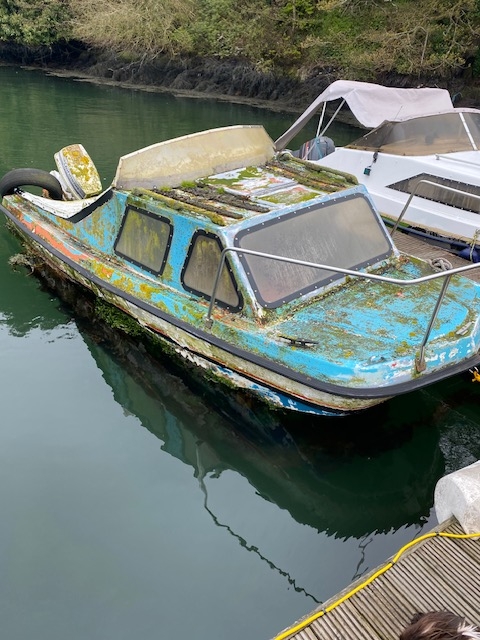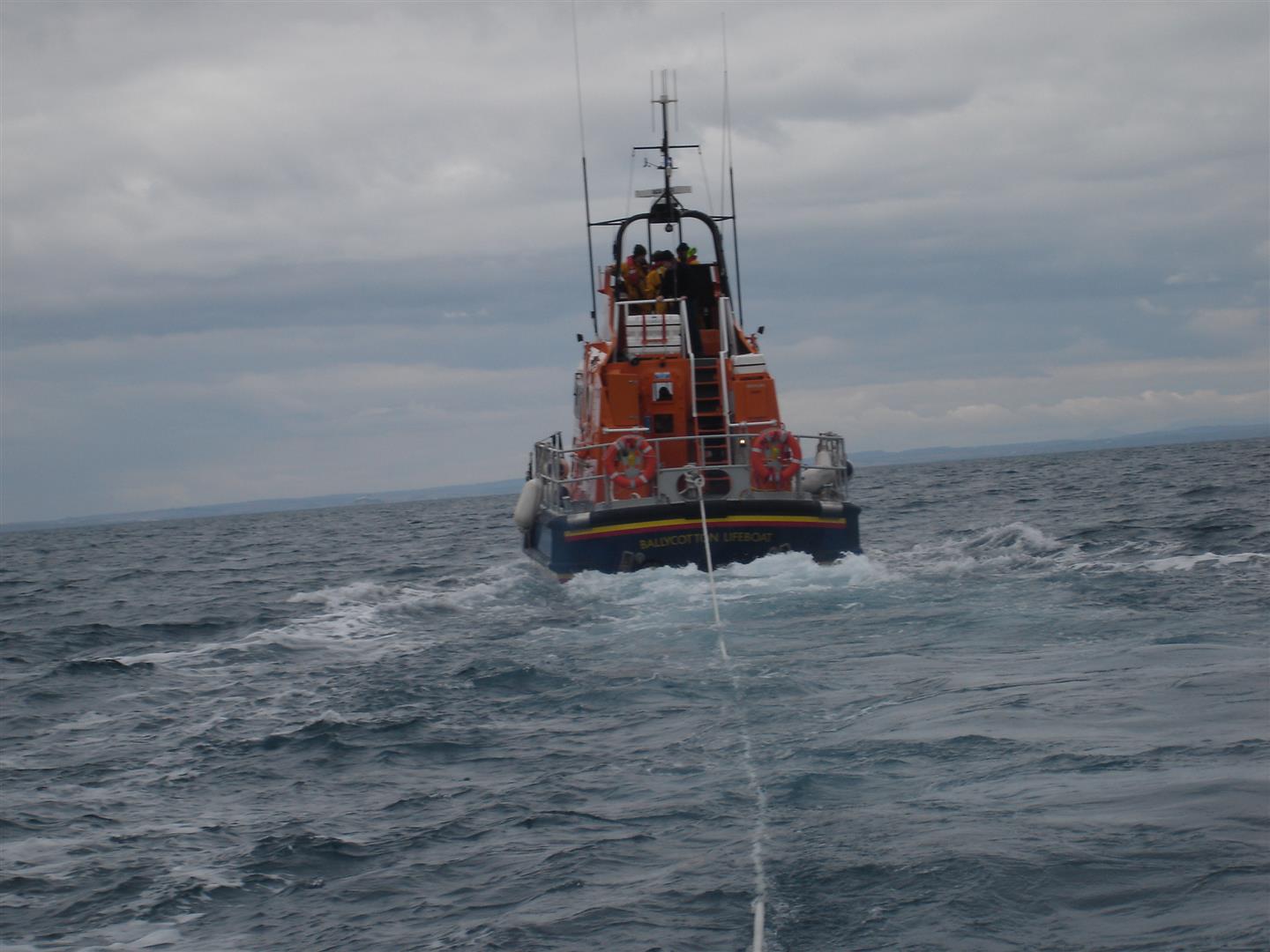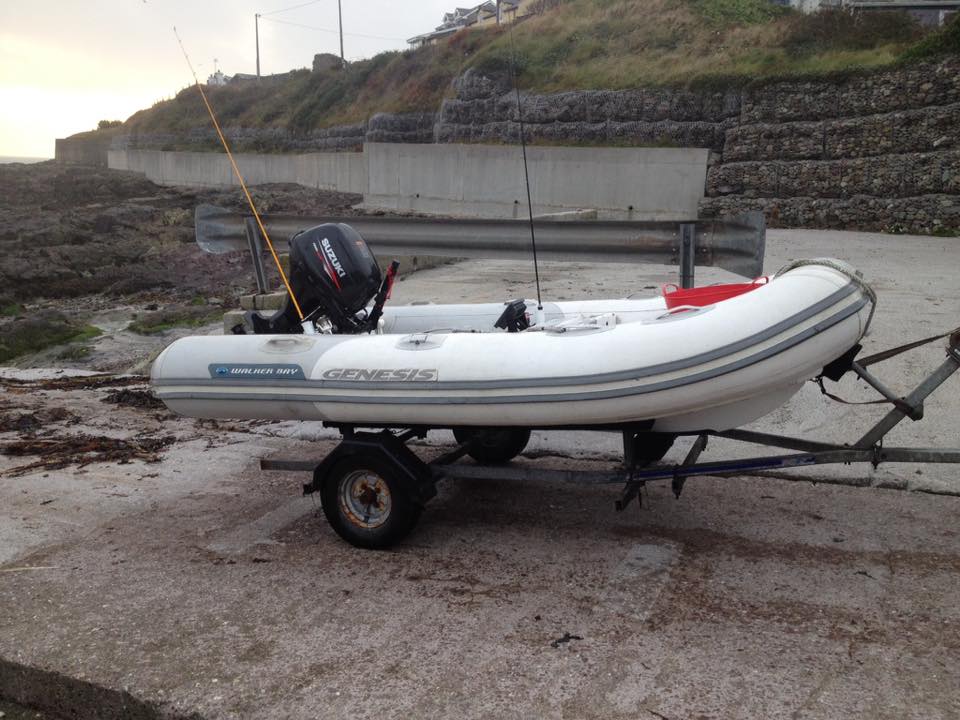*Thinking Of Getting Afloat

It’s the most daunting prospect for an aspiring boat angler – Buying your first boat. Whether you buy a brand shiny new boat or you opt for a good second hand machine it ranks as one of the major purchases of your life. Changing you boat is an even more traumatic experience as you look to not repeat the mistakes you made with your first purchase!
Buying a craft is a one of the best and worst experiences of your life! Every craft is a compromise between what you can afford, what you want to do and where you want to do it, and with whom. Be prepared for the compromises that are inherent with getting on the water. The important thing is to prioritise the factors that go into choosing a boat.
When you are looking at changing your boat or buying your first craft there is a process that you will have to go through. It doesn’t matter whether you are buying a little inflatable for inshore bass fishing or a serious offshore craft for tackling wrecks. It doesn’t matter if you are buying a single-seater kayak or a charter boat if you are to get it fairly right first time it is important to write down the things that you want to do with your boat. Ask yourself these questions:
- What is my budget?
- What do I want to do with my boat and when?
- How many people will I need to carry usually?
- How far from home base will I be operating?
- Will I be mooring the boat, tying up at a marina or launching and retrieving each time?
- Do I need a turn of speed?
- Inboard or outboard engine?
- Who will maintain the boat and equipment?
It does not end here. You will find that the truthful answer of each question will lead you to another series of questions and once these are answered the decision on your new craft will become clearer.

Budget
The amount you have available to spend on a boat determines the type of boat you will have but not completely. It will in most cases determine whether you can afford to go new or whether you will be looking for a decent second-hand boat. One thing I have seen time and time again most anglers will end up spending more than they budget when it comes to buying a boat. Some make the mistake of not building in the ancillaries that need to be purchased after they purchase their craft and end up under pressure as a result. It is important to list everything required for your boat as part of your preparations. Remember, budget is also related to what you want to do with your craft. A day boat will be less expensive to a larger boat on which you wish to overnight.

What do I want to do with my boat?
It may seem obvious, but many anglers do not ask this simple question before they start. Most will answer “I want to go fishing”. That is fine but when you ask about family commitments most will say that they also want to be able to accommodate the occasional family cruise or day out as well. Immediately the specification of the boat has changed to some degree. An outright angling boat will be different in layout to the “cruiser” or picnic boat and many will want a hybrid between the two. You might suddenly realise that you do not need a big boat. A small craft may just tick more boxes than a large vessel. You might even decide that a kayak is perfect for your needs. Whatever craft you decide you want will be balanced by the budget you have to purchase a craft.
The type or layout is usually guided by what you want to do. A kayak may be perfect for getting on the water but the solo fishing might not suit. An open boat or RIB might seem to be the perfect answer to many of your questions until the weather gets cold and you find you are not too inclined to fish in the winter and you miss the comfort of your old cuddy boat or pilot house. It is all a compromise!

Capacity
There is little point in buying a thirty foot boat if you are going to be fishing close to home and on your own most of the time unless you have that “big-boat” urge. However by the same token a warrior 165 is not going to be suitable for you if you mostly fish as a party of four! Capacity reaches towards the performance or size of the boat as well.
Size of boat has you thinking of towing and mooring. Lifting in and out of the water may not be a simple task depending on where you operate from.

How far from base will you be operating?
This is a vague notion and is so on purpose. In the first case we are speaking about how far we will be operating from the launch point or the marina. The answers here determine the performance required. If you are operating just a mile from base then maybe a slow boat will suffice perfectly. If you have to travel ten miles to get to fishing grounds then you may be forced down the route of a fast fisher. How far from base may also refer to how far from home the fishing goes on. How far from water are you based? Large distances may rule out towing your boat to water and now you need to budget for mooring fees, marina charges, port dues, anti-fouling and all the other logistical issues that come with the floating boat. There are as many pros and wells as cons when it comes to leaving your boat on the water. Many a skipper has found that the standing charge of a boat on a marina to be to much and a not-planned expense. Many find that the maintenance of trailers to be onerous in its own right.

Mooring, Marina, Towing/ Launching/Retrieving
There are pros and cons for each option. There is a huge comfort factor in having your boat at the side of your house on a stormy night. That is assuming that you have the space at the side of your house to store your boat. I have already mentioned the marina fees and antifouling are all considerations when budgeting for your boat. Simple things like an internal fuel tank can cause lots of work for the marina-based skipper. Whereas an internal tank is perfect for the towing skipper. Either way, towing or mooring brings it’s own logistical challenges that you need to sort out in your head before you spend that cash that’s burning a hole in your pocket.
How important is speed?
Speed costs! Planning hulls and bigger engines all cost more money. If your fishing grounds are close to your launch point you may not have need for a turn of speed. Modern angling trends tend to drive anglers towards speed in so the skipper can visit more marks more quickly. It is also a comfort factor when angling to know you can “run for home” if the sea conditions should turn poor or dangerous. How much is enough speed? If you are fishing alone most of the time the expense of fuelling up can be daunting in a larger boat – be it diesel or petrol. One thing is for sur: Don’t buy an underpowered boat. It will drive you mad and result in more expense as you got to correct your mistake. The Warrior family of boats are easy to determine the power requirements. Be wary of the little Sea-Hog with the little engine.

Engine
The choice of outboard over inboard motor has vexed many a skipper. Both have pros and cons that effect the launching/retrieving, speed, cost of running and much more when it comes down to your choice of boat.
Even when you get to outboards there are further questions – two stroke or four stroke? Even the inboard engine needs further decision making: inboard with a shaft driven propeller or inboard driven via a leg? The choice is yours depending on the compromises you will have to make.
Buying second hand is always a risk. You may be inheriting somebody else’s problems. Realistically you cannot expect an older engine to be faultless but of course you will find that lower hours means a more expensive purchase price. But of course do not trust the quoted hours unless the engine is modern enough to have the hours stored on an engine management system. Chances are the guy that tells you there’s 380 hours on the twenty year old motor that he’s the third owner of is making it up as he goes.
You really must carry out as much due diligence work on the motor before you buy. Have somebody look the engine over if you are not experienced enough yourself.

Hull
One big issue for small boat anglers purchasing older boats is the condition of the internal flooring. Most older small boats are built with a glassed-in timber floor. Over the years this floor gets wet and rots leaving soft spots. The job of replacing the floor would not daunt the skipper with DIY knowledge. But of course the price of the boat needs to reflect the cost of replacing.
A decent hull inspection is important to look for areas where repairs have been carried out. There is nothing wrong with a repaired hull once the repair is done correctly. The major issue owners face is water ingress into the inner hull and soaking into foam-filled chambers. This usually comes hand-in hand with floor issues.
Trailer
If you plan on launching and retrieving the trailer is an important part of the setup. There is ongoing maintenance to be considered to wheel bearings and rollers. Brakes are an ongoing scourge for the trailering skipper. Galvanised trailers will rust over time as do wheels and other fittings.
Equipment
Many skippers blow the budget so much they forget the equipment that is necessary to have great times on the water. The whole area of safety gear has been covered here before. Have a look here: http://www.topfisher.eu/keep-it-safe/
and here: https://www.gov.ie/en/publication/66ff7e-safe-operation-of-recreational-craft/
Safety gear is only the half of it! The array of angling and electronic equipment is another whole area to be considered. But get afloat first and upgrade later!

Security
More than ever before the question of boat security is a priority for all.
Even before you buy your craft you need to think about secure storage. The number of outboards that are stolen is gone beyond a joke. You need to think of secure storage for the winter time as well during the main season. Have you enough space at your house? Is your house secure? There have been many engines stolen from boats in supposedly secure boatyards. If you are leaving your boat in a boatyard make sure you check out insurance cover etc. In the simplest terms – the old Irish ways of “you do not touch a man’s gear” is gone. There are organised gangs from mainland Europe ranging across the country thieving engines. Some places are great and you can leave gear inside your boat without fear. On some marinas they would steal your landing net and anything not nailed down. Security must be a concern for all skippers.
Scammers abound
There are so many scammers online it is simple: Treat all ads as scams until you can verify that it’s not a scam.
The rules here are simple:
- If it appears too cheap then it probably is for a reason. A scam is likely nowadays.
- If the advertiser doesn’t want you to see the boat or cannot give you access “because they are working at the other end of the country” – Just walk away.
- If the advertiser wants you to transfer money, any amount, before you see the boat – Just walk away.
- It is important that you verify the bone fides of the seller and the boat. Better still, buy from somebody locally or from a reputable boat dealer. The small boat angling world is like a village – somebody will recognize the boat that is for sale and will know something about it so post it up on the small boat websites and social media groups if you have any doubts or questions.

Doing the deal – A great time- A tough time
All the questions listed lead to further questions. If you can answer as many questions as you are able to you stand a better chance of getting the best package for yourself, getting something that will be right first time and will stand the test of time. Of course over time your needs and wishes may change and your experience will grow also. This all helps when changing or selecting your next boat.
If you are contemplating getting on the water you should just go and do it. I have yet to meet the angler who regrets buying a craft. I have met plenty of anglers who have bought a craft that does not suit them so it pays to talk and research before making your final decision.
Of course it is one thing to have the craft; it’s another to know how to use it!












